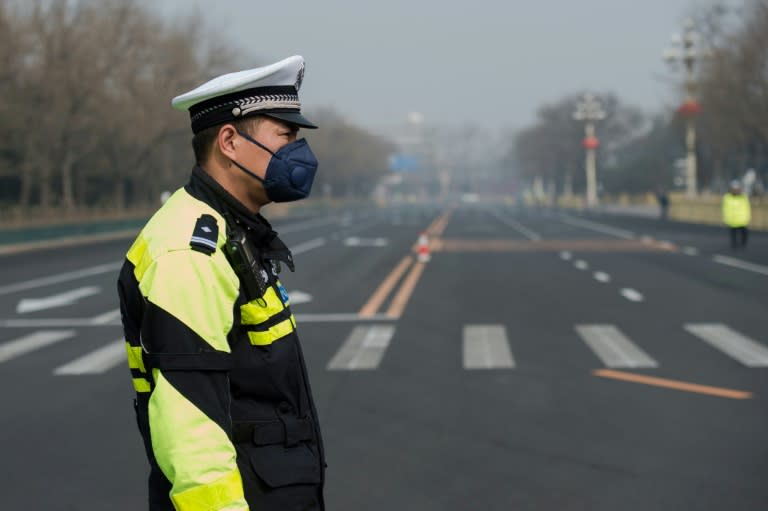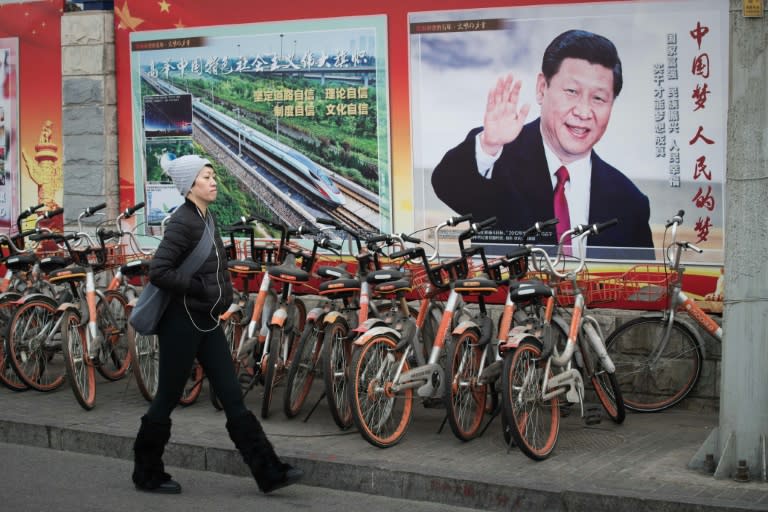China dragoons viewers to make pro-Xi film a blockbuster
Citizens across China are being corralled into cinemas to watch a propaganda film extolling the Communist Party and Xi Jinping, as an intensifying personality cult around the 64-year-old leader hits the big screen. The mass viewings by staff from companies and government agencies have catapulted the feature-length movie, called "Amazing China" in English and released March 2, into the ranks of the country's biggest box-office earners, with state media saying it was already the country's highest-grossing "documentary" ever. The feature, produced by state broadcaster CCTV and a government film group, fawns over China's achievements in science, technology, industry, and poverty reduction since Xi took power in 2012, and the mobilisation of movie-goers underlines his increasing dominance of public life. "Most of us are from a state tobacco company. We all came together," said a woman who was among hundreds of viewers at a Shanghai cinema that was, unusually for a weekday, sold out. "It's a very patriotic movie, and contains much of our party's doctrine, so it's our duty to watch it," she said cheerfully. The timing of the release of the film, distributed by Alibaba Pictures, is no accident. China's annual parliament meeting opened in Beijing on March 5 and on Sunday the Communist-controlled legislature voted to abolish presidential term limits, paving the way for indefinite rule by Xi, who has rapidly become China's most powerful leader since Mao Zedong. The move, which has prompted fears of a budding dictatorship, is part of an accelerating drive by Xi to accumulate power as he pushes his long-term plans to propel China to superpower status, backed up by a relentless domestic propaganda campaign. The official Xinhua news agency said "Amazing China" was the most talked-about film at parliament, cited by various ministers as proof of the country's progress. Breathlessly narrated segments praise China's armed forces modernisation, infrastructure achievements, space programme and economic development in backward regions like Buddhist Tibet and predominantly Muslim Xinjiang. Critics in those regions have complained of repression by Beijing and both have suffered bouts of violent anti-Chinese unrest in recent years. None of this is mentioned in the film. Major problems like chronic air pollution and corruption are also ignored. - 'Long live the party' - Instead, Tibetans are portrayed as the appreciative recipients of Communist aid that has saved them from poverty. "We are very grateful to the party. Long live the party!" says an elderly Tibetan woman in the documentary. Every few minutes, Xi materialises to offer fresh wisdoms and drive home the message. The viewer rating function on leading Chinese movie platform Douban.com has been disabled for "Amazing China", apparently to stifle criticism. But many Chinese internet users complained of being pressured to see the movie at their own expense and to write an appraisal of it. Some users of the Twitter-like Weibo platform pleaded with others to share their essays. "It's like schoolchildren being taken to watch a movie and then given homework on it," said one user, complaining that viewers were being treated like "big babies". At the packed Shanghai screening, audience members occasionally reacted with audible excitement at key moments, but some snoring could also be heard. One man said his trading company's Communist Party cell pushed employees to attend. "It was mandatory. But I'm glad we came. Don't you think it was great?" he asked. Xinhua said "Amazing China" had so far earned 227 million yuan ($36 billion) -- and counting -- at the box office. "Star Wars: The Last Jedi", by comparison, made around 267 million yuan in China, according to official sources. China restricts foreign movie imports and increasingly utilises cinemas to hammer party doctrine. Theatres across China were ordered last year to screen short clips promoting Xi-approved political messaging before feature films, and patriotic-themed blockbusters increasingly dominate the box office. The state administration governing film said on January 30 that 5,000 movie theatres around China would be designated as "People's Cinemas", showing only patriotic-themed content.




